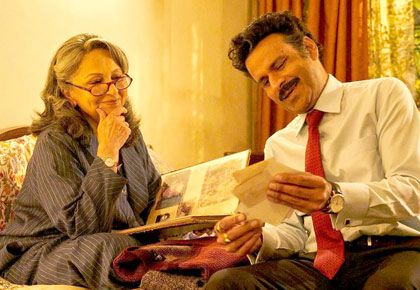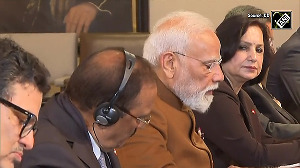'There's this one scene in Gulmohar that belongs to Manojji and everyone was excited for him.'
'The evening before we were to shoot it, everyone, from Sharmilaji to the junior most actor, wished him luck.'
'He was suddenly nervous.'
'The next day, 14 actors, from Sharmilaji and Amol Palekar to Suraj Sharma, all watched him perform.'
'It was like being back in film school.'
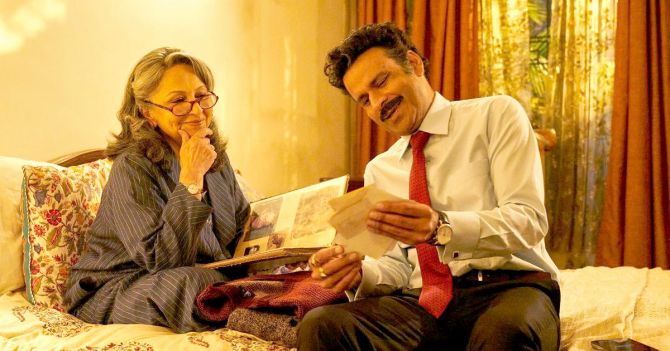
Bespectacled, intense, erudite, Rahul V Chittella could well be your affable college professor who can silence a room of slowly rising voices with a quiet, "Quiet."
He can even pass off as a young scholar.
But he is actually a writer, producer, director who has to his credit some critically acclaimed international projects, including Mira Nair's The Reluctant Fundamentalist, Words with God anthology and the Monsoon Wedding musical.
In fact, it was Mira's house in Delhi, being emptied out to be sold, that has inspired his debut feature film, Gulmohar, which premieres on Disney+Hotstar on March 3 and brings together three National Award winners, Sharmila Tagore, Amol Palekar and Manoj Bajpayee.
Speaking to Rediff.com Senior Contributor Roshmila Bhattacharya, Rahul says, "During the pandemic, I realised anew that home and family are the only two things that matter and that makes our subject even more topical today. As I keep saying, the world is becoming smaller every day, but at the same time we are also becoming lonelier despite having access to many more people."
Gulmohar... What does the word bring to mind?
It's a very beautiful Urdu word and I love the Hindustani language.
Gulmohar evokes beauty, a certain mystery and nostalgia given that when in season, Delhi is lined with gulmohar trees on both sides of the road.
It always brings a smile to my lips and Gulzar sahab's songs.
I discussed all this with my co-writer Arpita Mukherjee and we mutually decided to name the house Gulmohar because we did not want our film to be one-character driven, but a portrait of all the people living there.
How close are you to your family?
I come from a nuclear family.
(Smiles) My wife and I, along with our kid who's all of two-and-a-half years old, are a strong unit.
What does the word 'home' mean to you?
Togetherness.
The idea of the film came from exploring what is home and family.
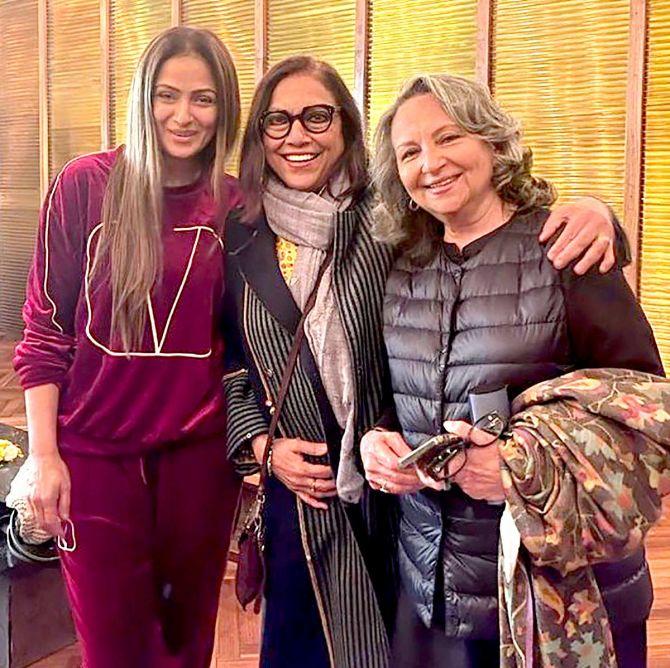
These are two things that the pandemic took away from many of us for months. Did this bring any changes in the script?
Not really, as the script was written back in 2019, before the pandemic.
Even Sharmilaji (Tagore) and Manojji (Bajpayee) were cast in the last quarter of that year.
But yes, it was heartbreaking to see so many people out on the streets without either during the pandemic.
I had read of famous people sleeping at railway stations and on streets, a roof is a privilege we often take for granted.
During the pandemic, I realised anew that home and family are the only two things that matter and that makes our subject even more topical today.
As I keep saying, the world is becoming smaller every day, but at the same time we are also becoming lonelier despite having access to many more people.
Earlier it was the head of the family whom everyone listened to. Today, that voice is often silenced by the branches.
(Smiles) In my film, Sharmilaji plays the matriarch and her character underlines that it is important the head of the family lays the foundation for the house and sets the tone which determines whether the next generation can voice their opinions freely or not.
I am a firm believer in learning from not just the previous generation, but also the next, irrespective of whether you agree with them or not.
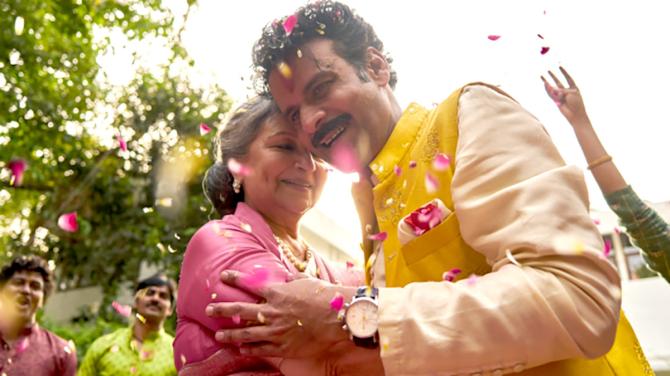
Both Sharmilaji and Manoj are very family-oriented...
(Interrupts) Yes, and they both come from joint families.
What did they bring to your film?
First warmth, lots of it, and discipline.
Second, being from joint families, right from the script readings,
they surrendered to the idea that Gulmohar is an ensemble film and there is no hierarchy.
Sharmilaji represents Indian cinema for me.
When I look at her, I remember that poignantly iconic scene in Apur Sansar when she looks out of the window, a tear dropping.
Or Roop Tera Mastana from Aradhana.
With Manojji, I remember Satya and Bhikhu Mhatre standing on the rock at Bandstand, shouting 'Mumbai ka king kaun?'
Not just on screen, but even off it, they set the tone for the other actors and crew, not through superiority and stardom, but from being a part of the team and respecting their work.
Growing up in joint families, they understand the emotion of togetherness and infused the others in the team with it.
There's this one scene in the film that belongs to Manojji and everyone was excited for him.
The evening before we were to shoot it, after the wrap, everyone, from Sharmilaji to the junior most actor, wished him luck.
(Laughs) He was suddenly nervous.
The next day, fourteen actors, from Sharmilaji and Amol Palekar to Suraj Sharma, all watched him perform. It was like being back in film school.
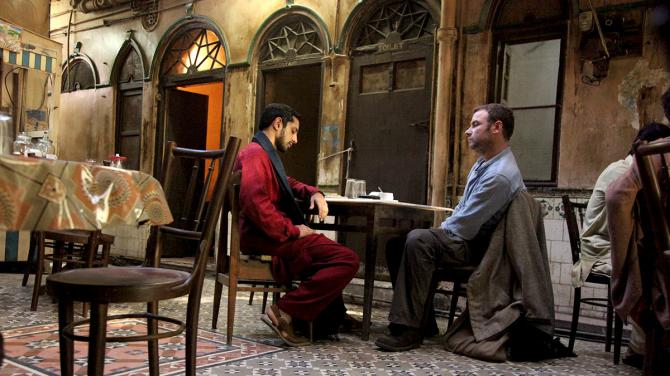
You were Mira Nair's creative and producing partner on The Reluctant Fundamentalist. Today, with religious intolerance grabbing headlines, the 2012 film seems even more relevant.
It's foolish to think that there is only one religion.
I believe religion is a personal and private matter.
It is your own affair.
I would like to preserve mine while respecting the choices of others.
Fortunately, the religious intolerance you mention is prevalent only among a certain section in our society.
India is a huge nation and we are progressing unlike some of the other nations around us who are going back in time.
We need different voices so we can clarify for ourselves which way we should go.
Your 2011 short Muted was about a man who one day is unable to hear humans or be heard by them. Today many of us are faced with the question of whether to speak or not.
We should speak, I genuinely believe that.
I don't know if my voice will be heard or not, but it should definitely not be curbed, and neither should anyone else's.
Even if their opinions differ from mine, they should be heard because, as I said earlier, to move forward you need all kinds of voices.
You can't have just one unilateral voice because that would be breaking down to a monolith which is not good.

Your 2016 directorial, the short film Azaad, speaks about the freedom of the press and is dedicated to all writers who have been silenced. What inspired it?
Investigative journalist J Dey (Jyotirmoy Dey) who was shot dead right below my building one Saturday afternoon in 2011.
It was India's first film to be screened by UNESCO at the prestigious World Press Freedom Day forum for three-four years.
The sad part is that it is still relevant.
But I believe that as long as you don't surrender and imprison yourself, no one can curb your freedom.
People have tried in the past, they will continue trying, but I don't think they will succeed in a country like India.
What did you think of Mira Nair's A Suitable Boy?
Vikram Seth's 1993 novel which put India on the world map with the Commonwealth Writers Prize and the W H Smith Literary Award was a tough book to adapt. I know as I wrote the Urdu dialogues.
Hats off to Mira and her writer Andrew Davis for adapting the 1,349 page novel so marvelously in six hours.
The novel is charming and Mira brings in her magic.
I was to produce the show, but the schedules clashed with Gulmohar's so I couldn't, but I know the hardships involved in budgeting and scheduling.
Production was hit by the pandemic and they had to edit the whole series remotely.
(Smiles) The music is so beautiful, Kavita Seth has sung for my Gulmohar too.
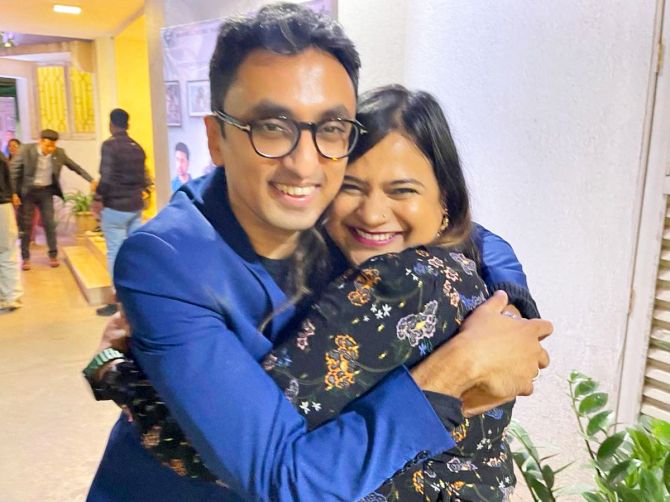
You didn't want to bring Gulmohar to the theatres first?
The decision is not so much content-driven as commerce-driven.
People are still not going to the theatres as much which is understandable since we have just come out of a pandemic.
Also, it's not as if we have a lot of them.
And, as a producer, I know it is an expensive affair to release a film.
You need a lot of money to market it and entice people to come to the theatres.
Even if it releases directly on OTT, like ours, you have to park a good amount of money in marketing, but the audience is more relaxed and can indulge in the laziness of watching it at home.
(Smiles) As it is, Gulmohar is a film about a home.
What's happening with the Monsoon Wedding musical that you were producing?
It premiered in Doha during the FIFA World Cup last year, performing 12 shows.
In May, we are opening at St Ann's warehouse in Brooklyn, New York.
Hopefully, we will go to Broadway next.
It won't be coming to India?
Yes, yes, we want to bring it down to India too.
It is very different from Mira Nair's film.
Vishal Bhardwaj has given the music, it is entertaining and so heartfelt.
